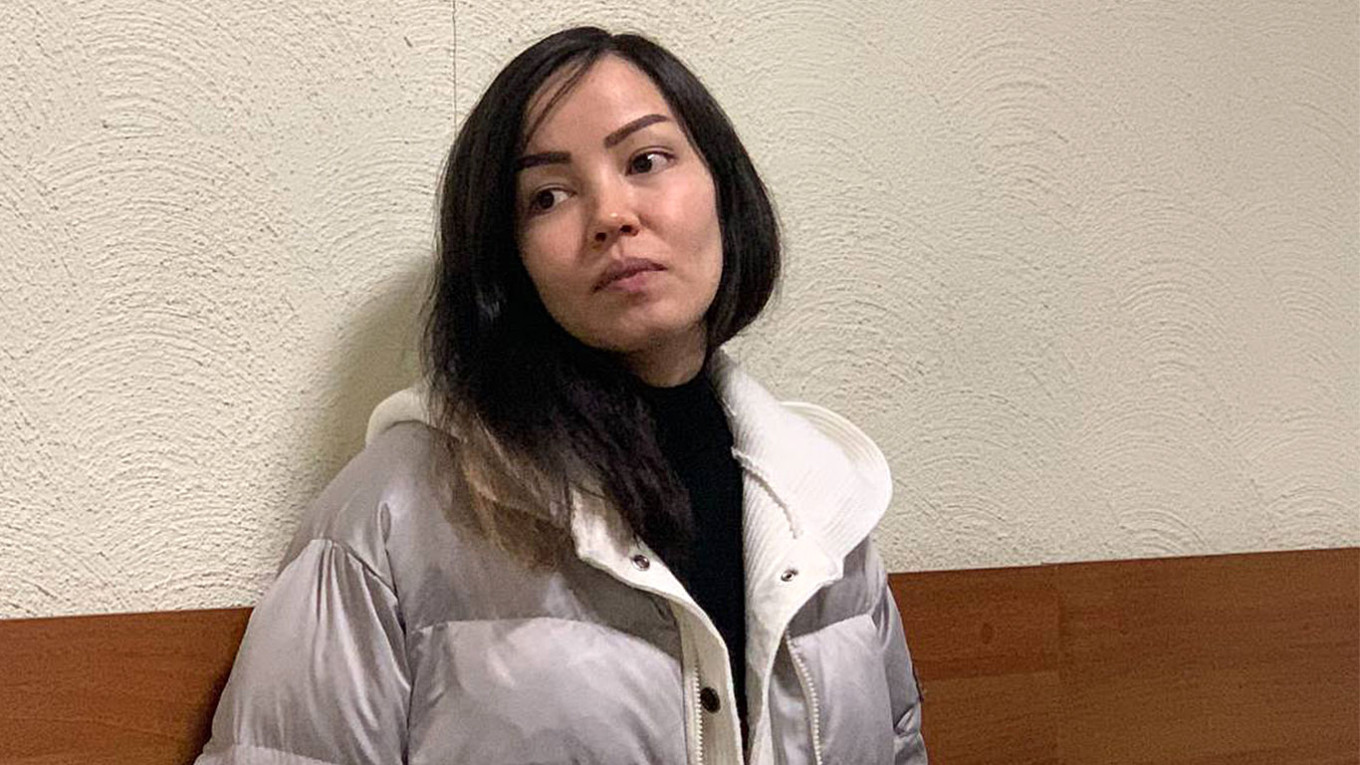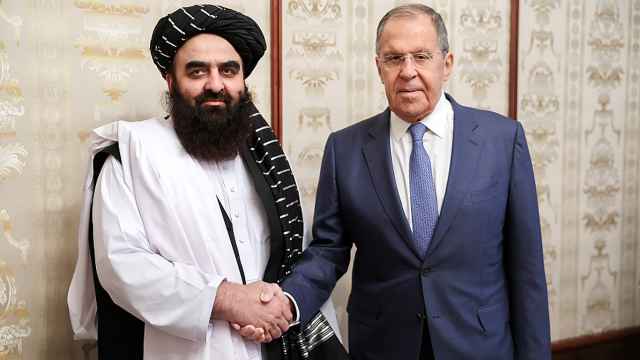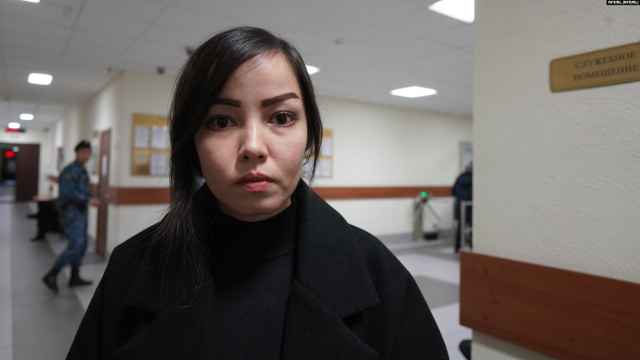A Russian court has overturned orders to deport Afghan journalist and activist Kobra Hassani, who feared for her life under the Taliban’s rule.
Hassani, 27, was among a group of 12 Afghan nationals who were detained near a St. Petersburg port in May 2022 on suspicion of attempting to illegally flee to Europe.
On Tuesday, a St. Petersburg court sentenced Hassani and 11 other Afghan men to two years in prison for illegally crossing the Russian border. The time they had served in pre-trial custody was credited toward their sentence, which the court ruled to be fully served.
The sentence had fueled fears that Hassani, who had covered women’s rights on Afghan television, would be imprisoned and tortured if deported from Russia to Afghanistan.
Russian authorities last month rejected Hassani’s asylum request.
St. Petersburg’s Krasnoselsky District Court on Wednesday dismissed the bailiff’s motion to extend Hassani’s detention in an immigration facility.
It also granted the defense’s motion to release Hassani from custody and not deport her from Russia because she is under travel restrictions.
“Her forced deportation from Russia is impossible and Hassani’s prolonged custody in the temporary detention center… excessively restricts her rights and freedoms,” the St. Petersburg court system’s Telegram channel said.
Hassani escaped the Taliban through Tajikistan and initially settled in Kyiv after the Islamic fundamentalist group came to power in Afghanistan in 2021.
Hassani attempted to flee to Poland after Russia's 2022 invasion of Ukraine, but she was instead taken to Russian-controlled Ukraine and then to Moscow through various intermediaries.
Russia has banned the Taliban as a terrorist organization but has hosted it in Moscow for security talks despite ideological and historical rifts.
Russia had fought against Islamist rebel militants for much of the 1980s during the Soviet-Afghan war.
A Message from The Moscow Times:
Dear readers,
We are facing unprecedented challenges. Russia's Prosecutor General's Office has designated The Moscow Times as an "undesirable" organization, criminalizing our work and putting our staff at risk of prosecution. This follows our earlier unjust labeling as a "foreign agent."
These actions are direct attempts to silence independent journalism in Russia. The authorities claim our work "discredits the decisions of the Russian leadership." We see things differently: we strive to provide accurate, unbiased reporting on Russia.
We, the journalists of The Moscow Times, refuse to be silenced. But to continue our work, we need your help.
Your support, no matter how small, makes a world of difference. If you can, please support us monthly starting from just $2. It's quick to set up, and every contribution makes a significant impact.
By supporting The Moscow Times, you're defending open, independent journalism in the face of repression. Thank you for standing with us.
Remind me later.






